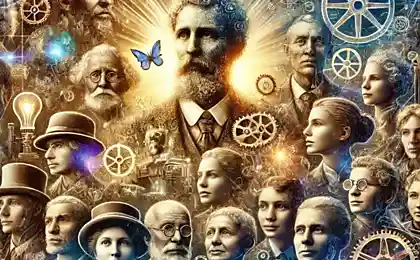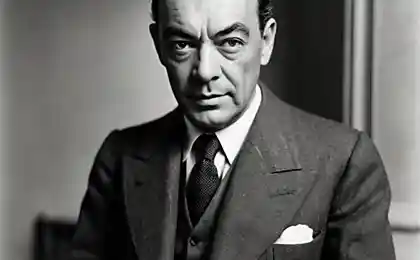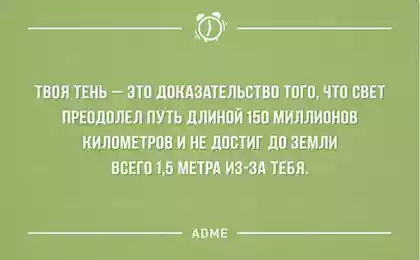1267
The collection is minimalist cards
London designer Janice Carreras (Genis Carreras) recently completed its minimalist collection of postcards, which skillfully combined the philosophy of graphic design. This is the second attempt of the designer to visualize philosophical concepts. Exactly one year ago, he showed the public their achievements. Today, Janice is improved fantastic series called «Philographics». The goal - to create a "visual dictionary of philosophy."

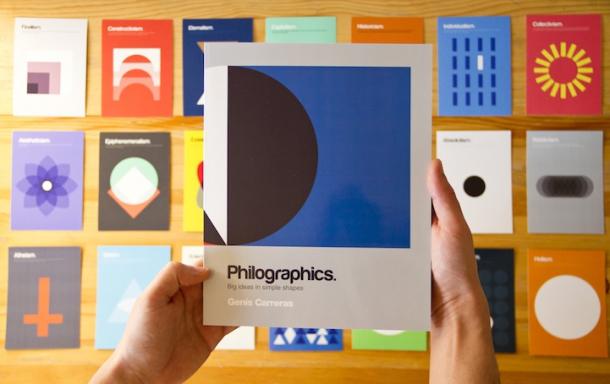
The series helps to understand important in the world of "isms", simplifying them to the most basic forms. In the first attempt Carreras tried to explain concepts such as duality, freedom of will, existentialism. To create the second part of the poster designer had to resort to additional research philosophical theory.
Aestheticism. The predominance of aesthetic values of ethics and of social problems. All efforts are focused on the development and creation of beauty.
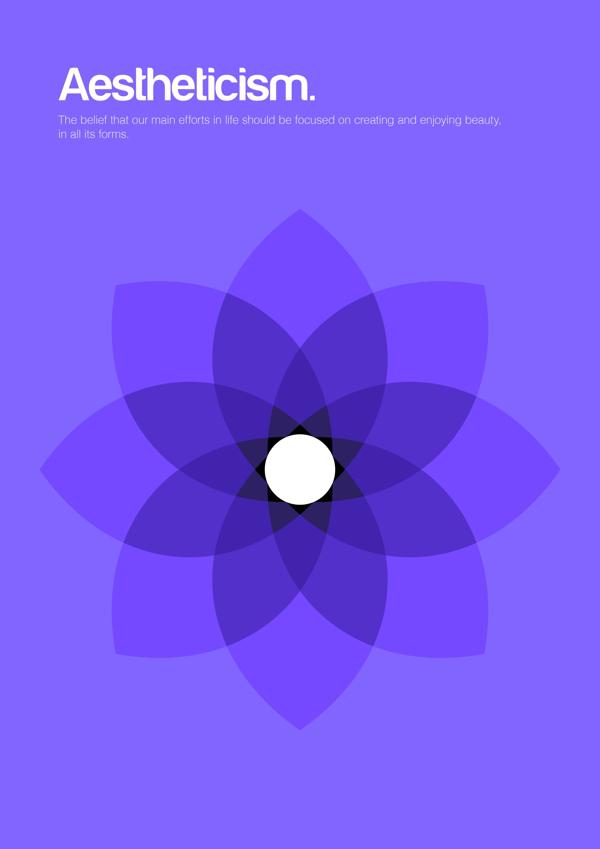
Free will. The possibility to choose the person, regardless of certain circumstances.

Altruism. The moral principle of conduct, meaning the ability to selflessly sacrifice their own interests for the benefit of the other person.

Anthropocentrism. The doctrine that man is the center of the universe.
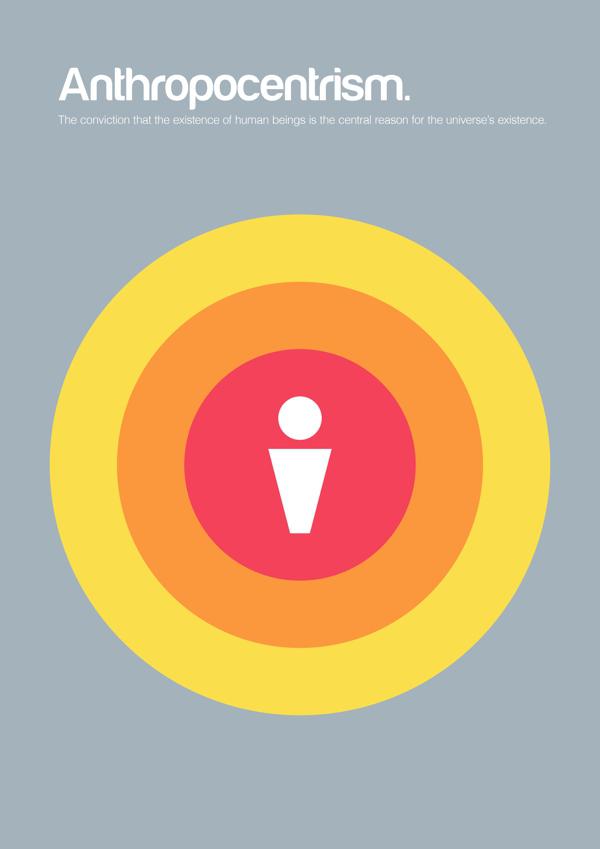
Working in various design agencies, Carreras was repeatedly involved in promotional projects for famous brands. Through this visual language gives him very well. Today the collection of posters of philosophical design has 95 cards created in the new graphics solutions, as well as the bold shapes and colors. Series combines not only the philosophy but also sociology with politics.
Atomism. The philosophical doctrine of the discontinuous, discrete structure of matter, according to which matter is composed of extremely small indivisible particles - atoms.

Constructivism. World view, the ideological foundation of which is to ensure that all future is predetermined
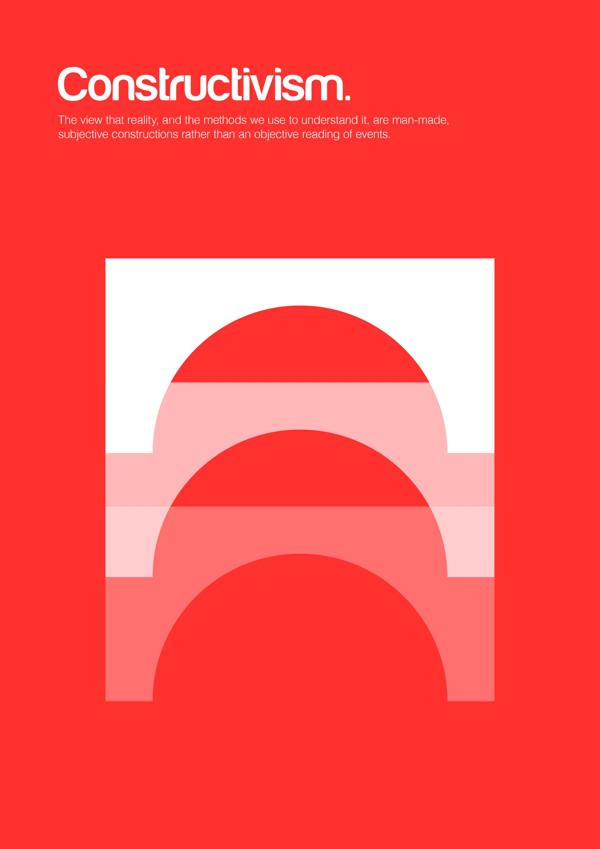
Capitalism. The economic system of production and distribution, based on private property, general legal equality and freedom of entrepreneurship.
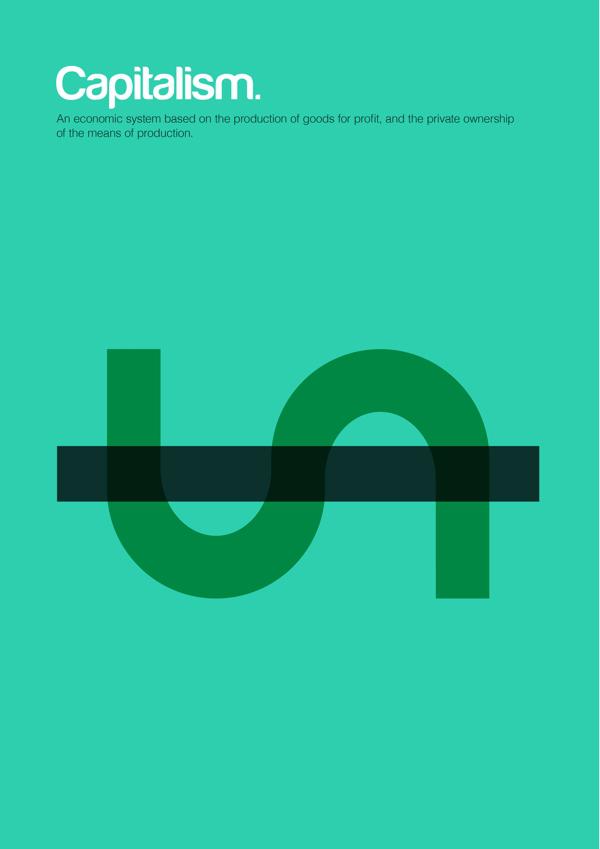
Contextualism. This is a system view of the development and behavior, all processes are always implemented in a specific physical and social context.
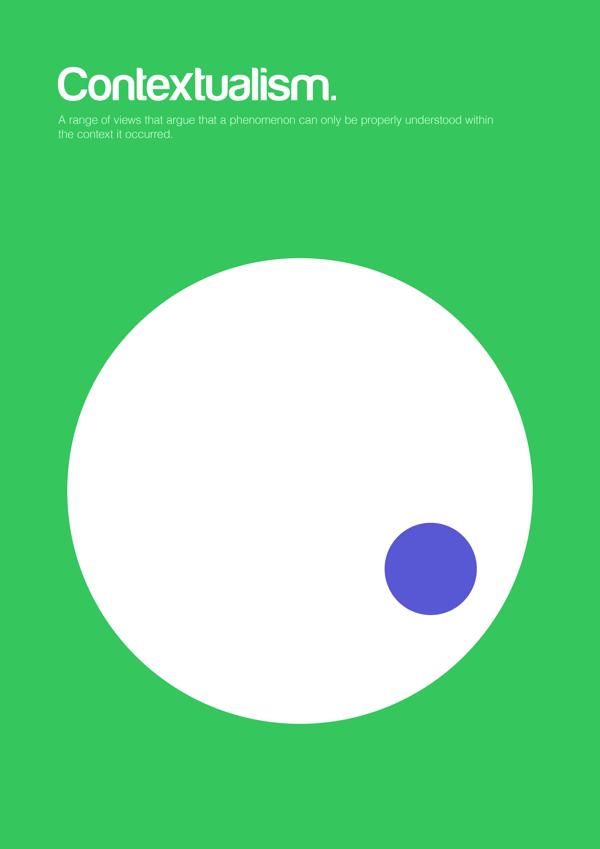
Collectivism. The organizing principle of mutual relations and joint activities of people.
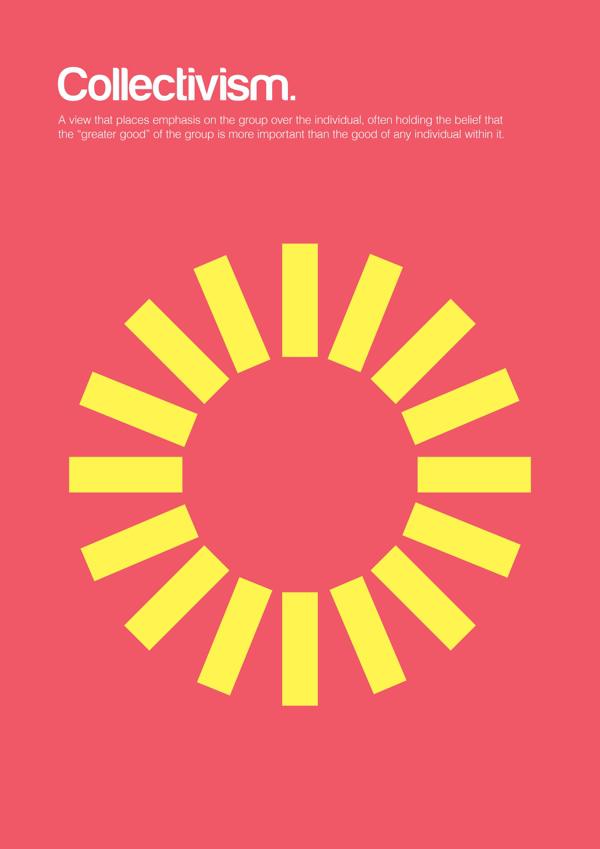
April 23 talented designer on the website Kickstarter has launched a project in which he asks everyone to help integrate all these posters in a book.
I hope the book and the cards will help people understand the various philosophical theories of our culture, or at least draw attention to them. With this project, I'm trying to get people to talk about the theory, bring philosophy into everyday life.
Cynicism. Frank defiantly, dismissive and contemptuous attitude towards the norms of public morality and cultural values.

Emotivism. The theory that ethical statements are not logical propositions, but only the expression of emotions.
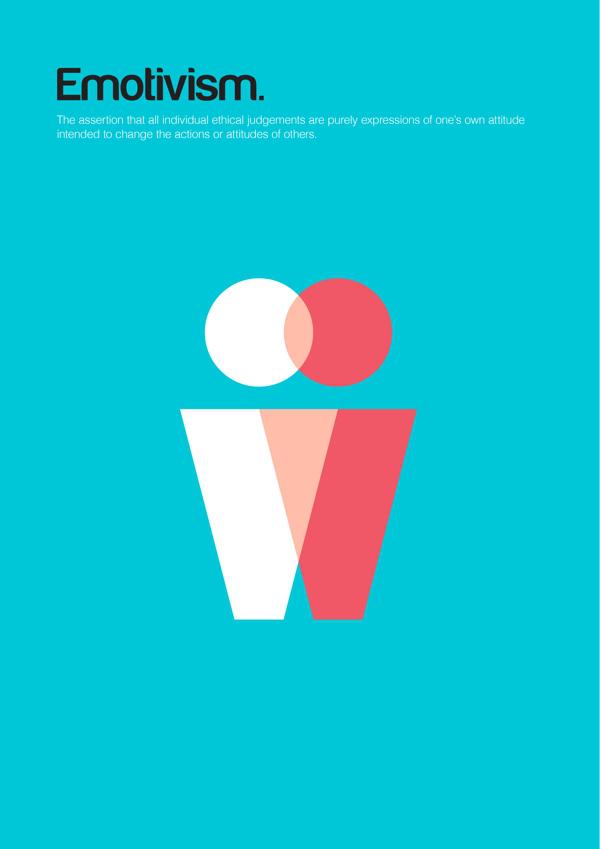
Egalitarianism. The concept, which is based on the idea of equality.

Epiphenomenalism. The doctrine according to which the mind does not play an active role in the life of man is only the surplus product of physiological processes.
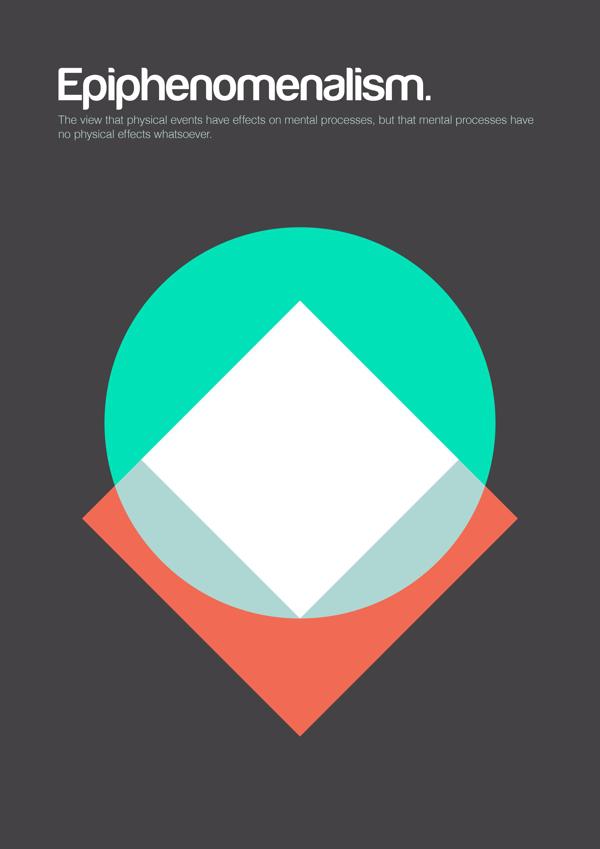
Eternalism. The special approach to the nature of time, when the time is the same static, as well as three-dimensional space, and future events already exist in the present.

Finalism. The assertion that any event determine the final result.

Historicism. The philosophical doctrine that knowledge of human activity is primarily historical character.

Indiviualizm. The priority of personal goals and interests, the freedom of the individual from society.

Objectivism. The philosophical doctrine of the objective reality.
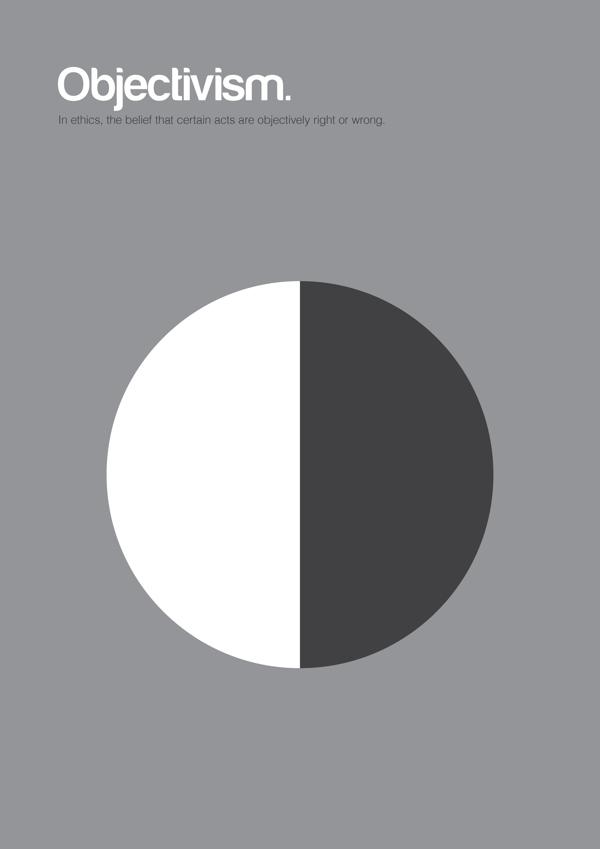
Stoicism. The principle that the emotional and physical self-control leads to inner harmony, which allows live a happy life.

Syncretism. Trying to reconcile the disparate, contradictory beliefs in one structure.
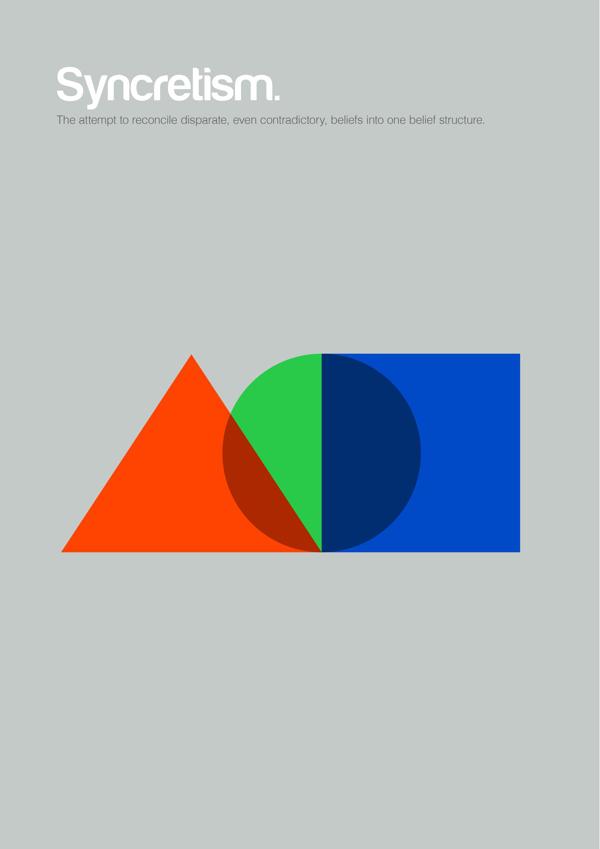
Totalitarianism. The form of the relationship of society and government in which political power takes over full control of the company.

Vitalism. The doctrine of the irreducibility of quality of life processes to the laws of the inorganic world, the presence of dead bodies of special factors that are not in the non-living.
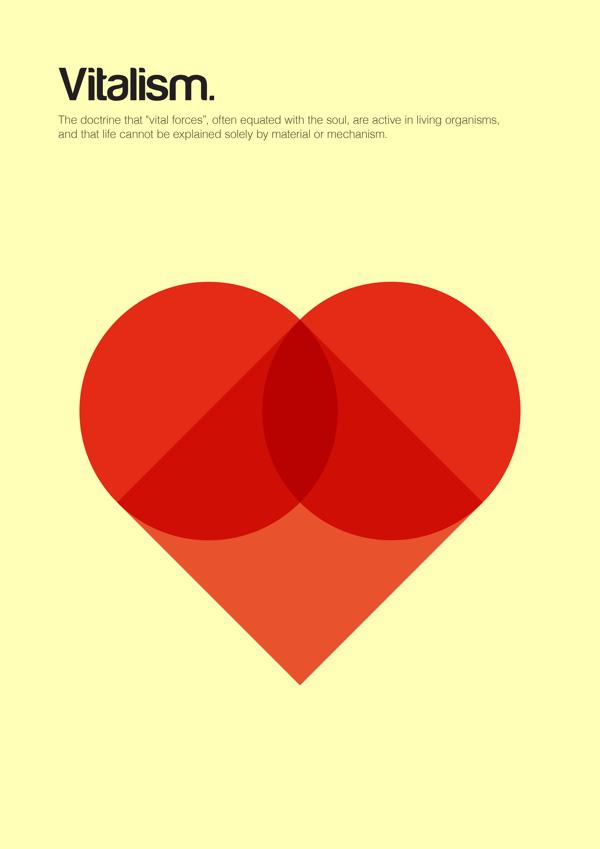
Dualism. The philosophical doctrine that comes from the recognition of the equal and irreducible to each other the two basic principles of the universe - the material and the spiritual, physical and mental, body and soul.
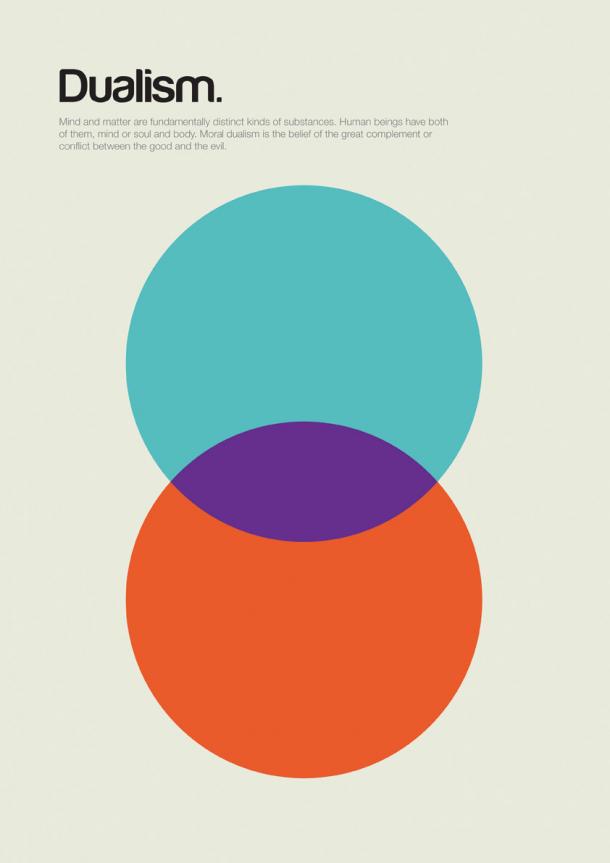


The series helps to understand important in the world of "isms", simplifying them to the most basic forms. In the first attempt Carreras tried to explain concepts such as duality, freedom of will, existentialism. To create the second part of the poster designer had to resort to additional research philosophical theory.
Aestheticism. The predominance of aesthetic values of ethics and of social problems. All efforts are focused on the development and creation of beauty.

Free will. The possibility to choose the person, regardless of certain circumstances.

Altruism. The moral principle of conduct, meaning the ability to selflessly sacrifice their own interests for the benefit of the other person.

Anthropocentrism. The doctrine that man is the center of the universe.

Working in various design agencies, Carreras was repeatedly involved in promotional projects for famous brands. Through this visual language gives him very well. Today the collection of posters of philosophical design has 95 cards created in the new graphics solutions, as well as the bold shapes and colors. Series combines not only the philosophy but also sociology with politics.
Atomism. The philosophical doctrine of the discontinuous, discrete structure of matter, according to which matter is composed of extremely small indivisible particles - atoms.

Constructivism. World view, the ideological foundation of which is to ensure that all future is predetermined

Capitalism. The economic system of production and distribution, based on private property, general legal equality and freedom of entrepreneurship.

Contextualism. This is a system view of the development and behavior, all processes are always implemented in a specific physical and social context.

Collectivism. The organizing principle of mutual relations and joint activities of people.

April 23 talented designer on the website Kickstarter has launched a project in which he asks everyone to help integrate all these posters in a book.
I hope the book and the cards will help people understand the various philosophical theories of our culture, or at least draw attention to them. With this project, I'm trying to get people to talk about the theory, bring philosophy into everyday life.
Cynicism. Frank defiantly, dismissive and contemptuous attitude towards the norms of public morality and cultural values.

Emotivism. The theory that ethical statements are not logical propositions, but only the expression of emotions.

Egalitarianism. The concept, which is based on the idea of equality.

Epiphenomenalism. The doctrine according to which the mind does not play an active role in the life of man is only the surplus product of physiological processes.

Eternalism. The special approach to the nature of time, when the time is the same static, as well as three-dimensional space, and future events already exist in the present.

Finalism. The assertion that any event determine the final result.

Historicism. The philosophical doctrine that knowledge of human activity is primarily historical character.

Indiviualizm. The priority of personal goals and interests, the freedom of the individual from society.

Objectivism. The philosophical doctrine of the objective reality.

Stoicism. The principle that the emotional and physical self-control leads to inner harmony, which allows live a happy life.

Syncretism. Trying to reconcile the disparate, contradictory beliefs in one structure.

Totalitarianism. The form of the relationship of society and government in which political power takes over full control of the company.

Vitalism. The doctrine of the irreducibility of quality of life processes to the laws of the inorganic world, the presence of dead bodies of special factors that are not in the non-living.

Dualism. The philosophical doctrine that comes from the recognition of the equal and irreducible to each other the two basic principles of the universe - the material and the spiritual, physical and mental, body and soul.






